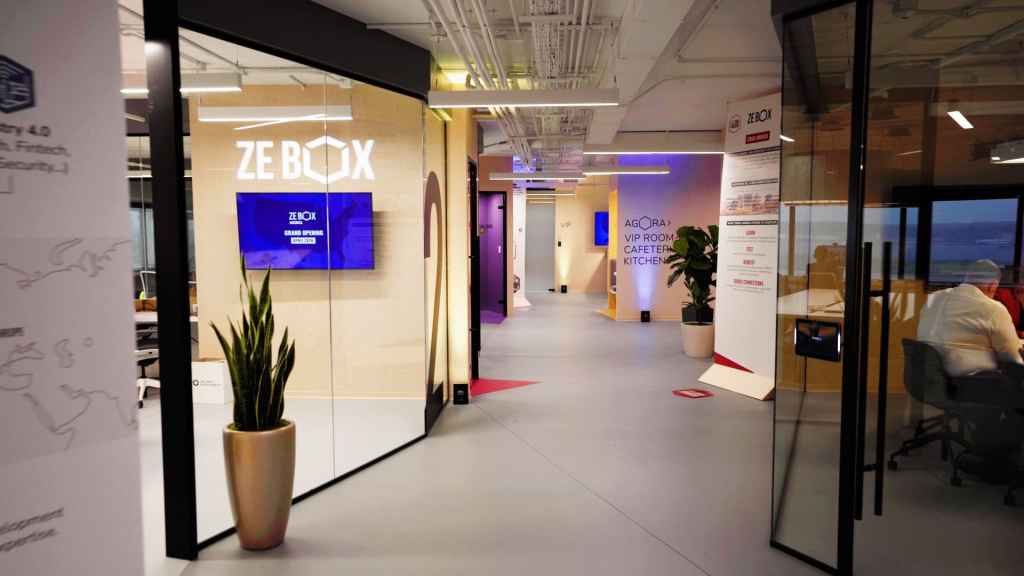ZEBOX, an international accelerator network founded by shipping conglomerate CMA CGM to introduce more tech innovation into the supply chain industry, announced today the launch of its APAC headquarters. Based in Singapore, ZEBOX Asia will also look at markets like Indonesia, Malaysia, Taiwan, Japan and Korea.
The APAC hub is backed by Enterprise Singapore, a board under the Ministry of Trade and Industry to foster SME development, and the Maritime and Port Authority of Singapore, alongside industry partners Bureau Veritas Marine and Offshore, PSA unboXed and Synergy Marine Group.
Founded in 2018 by CMA CGM Group chairman and CEO Rodolphe Saadé, ZEBOX already has hubs in France, the United States, the United Kingdom, West Africa and the Caribbeans, which have collectively worked with 100 startups that have raised a total of $235 million in funding. It has 20 corporate partners that startups collaborate with while they are in ZEBOX’s incubator, including BNP Paribas, CEVA Logistics, Infosys, BNSG Railway, Port of Virginia and Centrimex.
ZEBOX CEO Gwen Salley told TechCrunch that along with access to mentoring, experts, business opportunities and funding, its incubator program gives startups opportunities to test their solutions and work with large corporations. For corporate partners, the advantage is working with startups that can address their specific business challenges and engage in de-risked proof of concepts.
The incubator network picked Singapore for its newest hub because more than 4,000 regional headquarters and startups are based there and it has pro-business policies, an efficient regulatory framework, transparent legal and financial systems and strong digital infrastructure, Salley said. “Additionally, the city state’s strategic location at the crossroads of major shipping lines and air routes connects large parts of Asia to the rest of the world, making it a global logistics hub,” he added.
Some examples of startups incubated by ZEBOX include Searoutes, which uses routing engines and predictive data to show shippers how much CO2 emissions they’re producing at key points in the procurement chain and Sublime Energie, a deeptech startup that focuses on biogas liquefaction tech and provides biogas collection services. Both of these took part in ZEBOX France.
BasicBlock, which took part in ZEBOX America and has iraised more than $78 million in funding, automates invoices and develops financial products for the freight industry. Expedock, also from ZEBOX America, has raised more than $20 million and automates freight documents, payable reconciliation and other manual paperwork. Meanwhile, SMO Solar Process, which took part in Zebox Caribbeans, developed solar-based technology that turns carbon-based waste into other materials, like hydrogen, biochar and carbon powder.
ZEBOX looks for startups in four area. One is operational efficiency, or tech that helps minimize the physical movements of goods in everyday operations. Another is decarbonization and ZEBOX is looking at alternative fuels, net zero energy, asset recovery, green infrastructure, emissions tracking and reporting and sustainable warehousing and distribution. This is an especially critical area for CMA CGM Group, since its goal is to reach net zero carbon by 2050. The company says it has already reduced carbon emissions per container carried by 50% since 2008.
The third area of focus, workflow automation, looks for startups that streamlines and eliminates back office tasks so companies can get more work done in less time. Finally, the future of work will zone in on startups that can innovate in training, workplace safety, employee engagement, talent acquisition, hybrid work environments, ESG and customer experience.
In a statement, Maritime and Port Authority of Singapore chief executive Teo Eng Dih said, “Startups play a critical role in the transformation of the maritime sector by generating value through their innovative solutions. Through working with partners, MPA hopes to anchor more marinetech startups in Singapore to develop, test and commercialize new products and services from Singapore to benefit the global maritime community.”































Comment